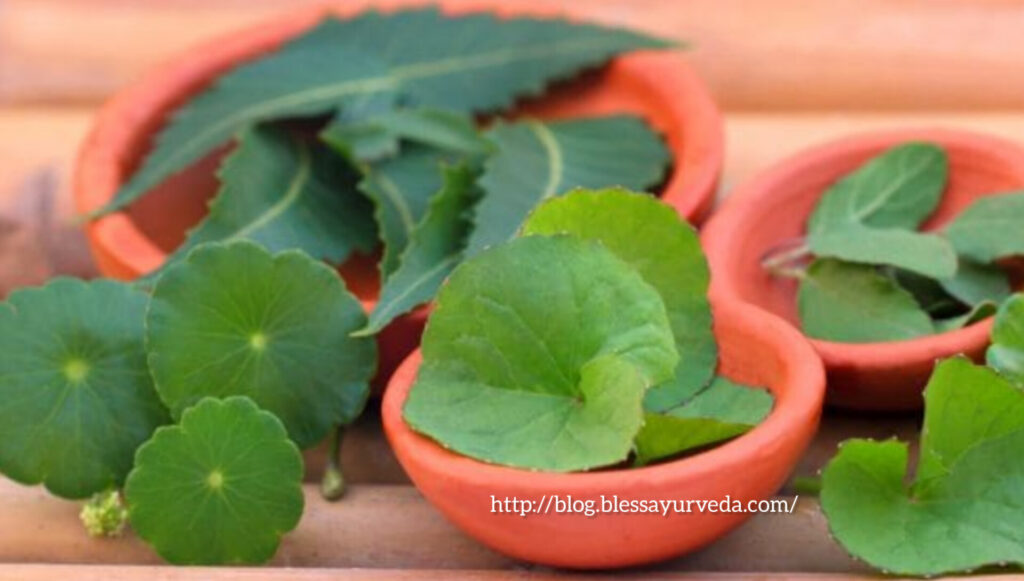Seasonal Affective Disorder (SAD) is a type of depression
that occurs in relation to the changes in seasons. This
condition is characterized as a casual disturbance in the health
due to change in season or winter blues.

What are the symptoms of Seasonal Affective Disorder?
- Major symptom is depression during late fall or early winter.
- Low energy
- Loss of interests in the same activities that a person used to enjoy previously
- Loss of appetite
- Changes in body weight
- Feeling of guilt and worthlessness
- Sleep issues like excessive sleep or insomnia
- Frequent thoughts of suicide
In its holistic approach, the science of Ayurveda gives prime
importance to mental health as anything that disturbs the
balance of body and mind produces diseases. Master Charak
states –
“Vishado Rogavardhanam Agrya”
It means that vishada (poor or negative mental health) is the
foremost factor to worsen the disease condition.
How Ayurveda can help in Seasonal Affective Disorder?
As the climate becomes cold, dry and windy in winters, it
encourages the Vata dosha within the body to get aggravated.
Thus, following the principles of balancing Vata dosha,
Ayurveda helps in pacifying Vata dosha during the autumn
and winter seasons.
There are various treatment modalities available in Ayurveda
that help in promoting the intellect and deeply nourish the
neurological tissues as well.

Some herbs useful in the treatment of Seasonal Affective
Disorder are:
- Brahmi (Bacopa monnieri): Brahmi is considered as an effective herb for the treatment of Seasonal Affective Disorder due to the presence of an active principle, hersaponin that helps in regulating brain wave activity.
- Brahmi can be given in the form of tea, brahmi ghrit is also used.
- Brahmi Ghrit is suitable for both nasya as well as internal use.
- Shankhpushpi (Convolvulus pluricaulis): Shankhpushpi is quite effective in calming the mind and balancing the Sadhak Pitta.
- If there is a history of alcohol or drug abuse, shankhpushpi will be tremendously effective in healing the liver.
- This herb acts as a brain tonic by calming the brain and relieving stress and anxiety.
- Vacha (Acorus calamus): Vacha is an effective herb for seasonal affective disorder due to the presence of an active principle, acorin.
- Vacha is known to calm Vata and Kapha doshas.
- It works by acting as a nerve tonic and enhancing brain function as well.
- Jatamansi (Nardostachys jatamansi): Jatamansi is a highly aromatic herb having bitter and astringent tastes.
- It is known to nourish prana vayu, tarpak kapha and sadhak pitta. Therefore, it is considered as an important herb in treating seasonal affective disorder.
- Ashwagandha (Withania somnifera): Ashwagandha is an herb which is a gift to the mankind as it strengthens the mind and body.
- For thousands of years, Ashwagandha is considered as a Rasayana that supports longevity and physical health.
- Ashwagandha can be used in the form of powder with warm milk for seasonal affective disorder.
Diet and Lifestyle:
- Indulging in daily and regular exercise is recommended.
- Sitting closer to open windows from where the light can enter is beneficial.
- Open blinds during winter season.
- Sitting in sunlight is also recommended.
- Connect people and enjoy life to the best possible extent.
- Oil massage with sesame oil or brahmi oil should be done.
- Yoga, Pranayam and Meditation should be the part of daily routine.
- Almond milk should be taken regularly.
- Herbs like Ashwagandha, Brahmi, Shankhpushpi act as good mental tonics.
- Intake of spicy, sour and salty food should be avoided.
- Spices such as cumin, cinnamon, cardamon etc. should be included in daily diet.
- Reduce the intake of dry, light, cold, bitter, pungent and astringent foods.
Thus, Ayurveda can help in better understanding of Seasonal Affective Disorder as well as in effective prevention and treatment of the same that will help in reducing the stigma associated with this condition.
Disclaimer:-
This article is not a substitute to the standard Medical Diagnosis or personalized Ayurvedic Treatment! It is intended only for Information!
For experts consultation, please write us at care@blessayurveda.com
1,527 total views, 1 views today